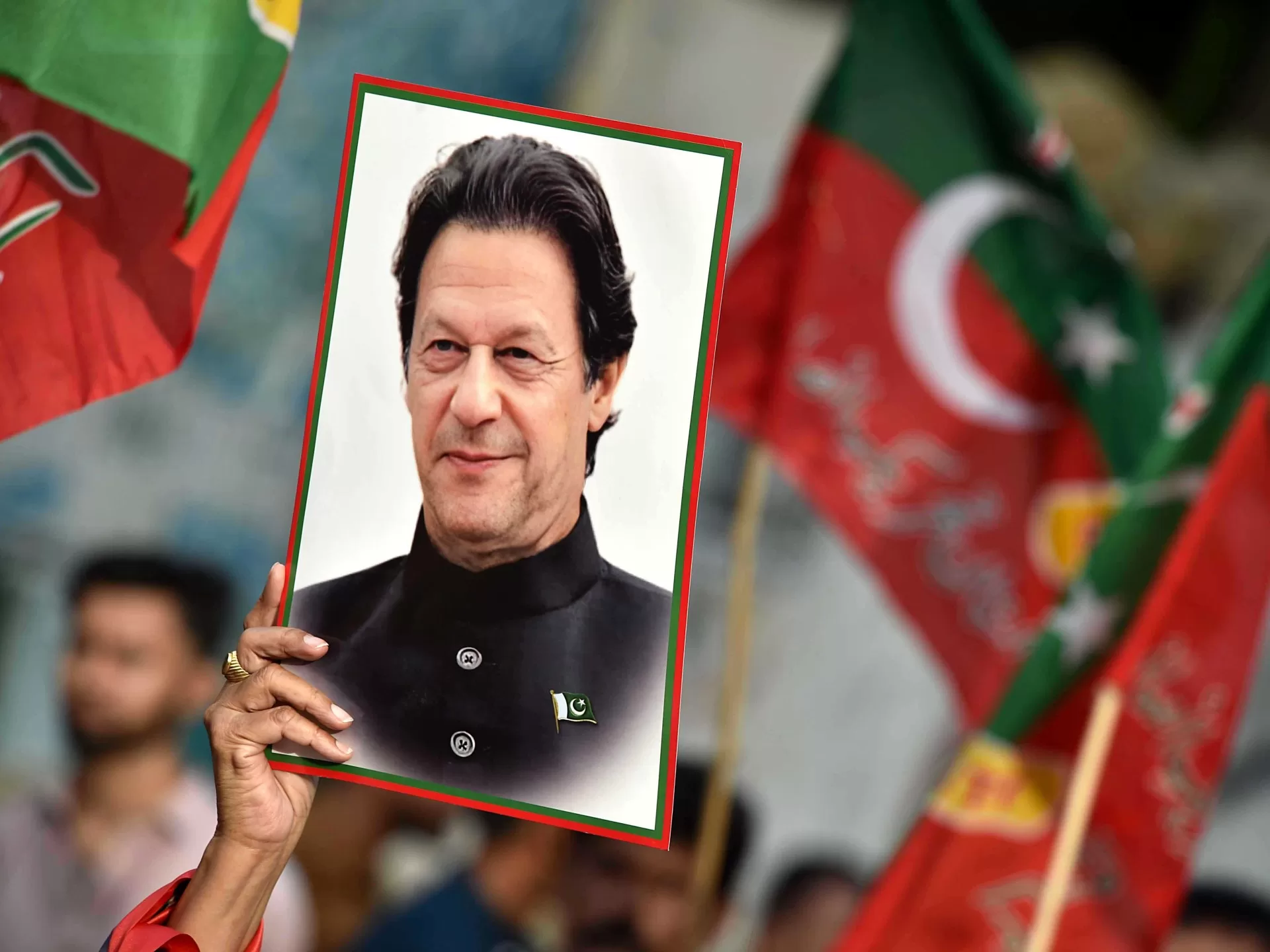Islamabad, Pakistan – The Supreme Court has handed a major legal victory to the Pakistan Tehreek-e-Insaf (PTI) party of former Prime Minister Imran Khan, declaring it eligible for a share of reserved seats in national and provincial assemblies.
The judgement, announced on Friday by a 13-member bench in an 8-5 ruling, dealt a significant setback to the coalition government.
The case was filed by the Sunni Ittehad Council (SIC), a political party that PTI-backed candidates had joined after the February 8 general election, which they were compelled to contest as independents.
The PTI, led by Khan, who has been in jail since August due to criminal cases filed against him, was denied the right by the Election Commission of Pakistan (ECP) to contest the elections under its electoral symbol, a cricket bat, due to electoral law violations.
Consequently, PTI candidates had to run as independents, yet they surprised observers by winning 93 seats in the National Assembly – more than any other party. The Pakistan Muslim League-Nawaz (PMLN) came second with 75 seats, and the Pakistan People’s Party (PPP) was third with 54 seats.
After Khan’s refusal to join hands with any of his rivals, the PMLN and PPP agreed to form a coalition government with other smaller parties.
Under Pakistani law, 266 National Assembly seats are chosen in the general election, and 70 additional reserved seats (60 for women and 10 for minorities) are distributed to political parties based on their election performance. A total of 169 seats is required for a simple majority to form a government with a two-thirds majority of 224 votes necessary to pass constitutional amendments.
In its short order on Friday, the Supreme Court recognised the PTI as a political party and affirmed that not having an election symbol does not affect a party’s legal rights to field candidates.
“PTI was and is a political party, which secured general seats in the national and provincial assemblies in the general elections of 2024,” the verdict read.
The court has directed the PTI to submit its list of names for reserved seats within two weeks. PTI-backed candidates who joined SIC in the assembly are also required to submit affidavits declaring their political affiliation within the same timeframe.
SIC currently holds 86 seats in the National Assembly while four PTI-backed candidates chose to remain independents. It is expected that just over 20 reserved seats will be allocated to PTI-backed candidates in the national legislature after this verdict.
PTI leader Gohar Ali Khan praised the Supreme Court’s decision, calling it a victory for the rule of law.
“This decision will be remembered in history. It’s a win for Pakistan’s democracy and restores our party’s rights,” he told the media after the ruling.
Constitutional lawyer Rida Hosain also supported the court’s decision, which criticised the ECP’s performance and questioned its impartiality and competence.
“The order criticises the ECP for its conduct, which has been detrimental to Pakistan’s democratic process. The electoral watchdog has a constitutional duty to be independent and impartial, yet it acted against a major political party, unlawfully denying PTI its right to contest elections,” she told Al Jazeera.
Akram Khurram, an Islamabad-based lawyer specialising in electoral law, also criticised the ECP, noting that all judges unanimously questioned the election authority’s decision to bar the PTI from using its symbol during the elections.
“Every judge on the bench concluded that the ECP misinterpreted the Supreme Court’s verdict on PTI’s electoral symbol. The election body must take responsibility for the political crisis and legal complications arising from its decision,” he told Al Jazeera.
Election Commission officials have denied any bias in their conduct.
Political analyst Benazir Shah highlighted the impact of the verdict on parliament’s composition and reputation.
“If PTI had lost the reserved seats, it would have further damaged parliament’s credibility. Now, with reserved seats allocated to PTI, it becomes the largest political party in parliament,” she told Al Jazeera.
She noted that this could shift attention to the ruling coalition and particularly the PPP, the third largest party in the assembly, including whether it might be tempted to join the PTI in a new alliance.
“Although the government and its allies still hold a clear majority in the house, we need to see what the PPP will do. They might consider forming a government with PTI and leaving the coalition with the PMLN,” Shah said. “It is worth noting that PPP was open to forming a government with PTI right after the election.”
Majid Nizami, a Lahore-based political commentator, described the decision as a “sigh of relief and a ray of hope” for the PTI, which has faced political challenges since its goverment was ousted in April 2022 by a parliamentary vote of no confidence.
Nizami pointed out that while the numerical balance in national and provincial assemblies may not change significantly, the court decision will impact the legislative process.
“The government will no longer have a two-thirds majority in the assembly. This means any constitutional amendments and laws they planned to present cannot pass smoothly without PTI’s support,” he told Al Jazeera.
